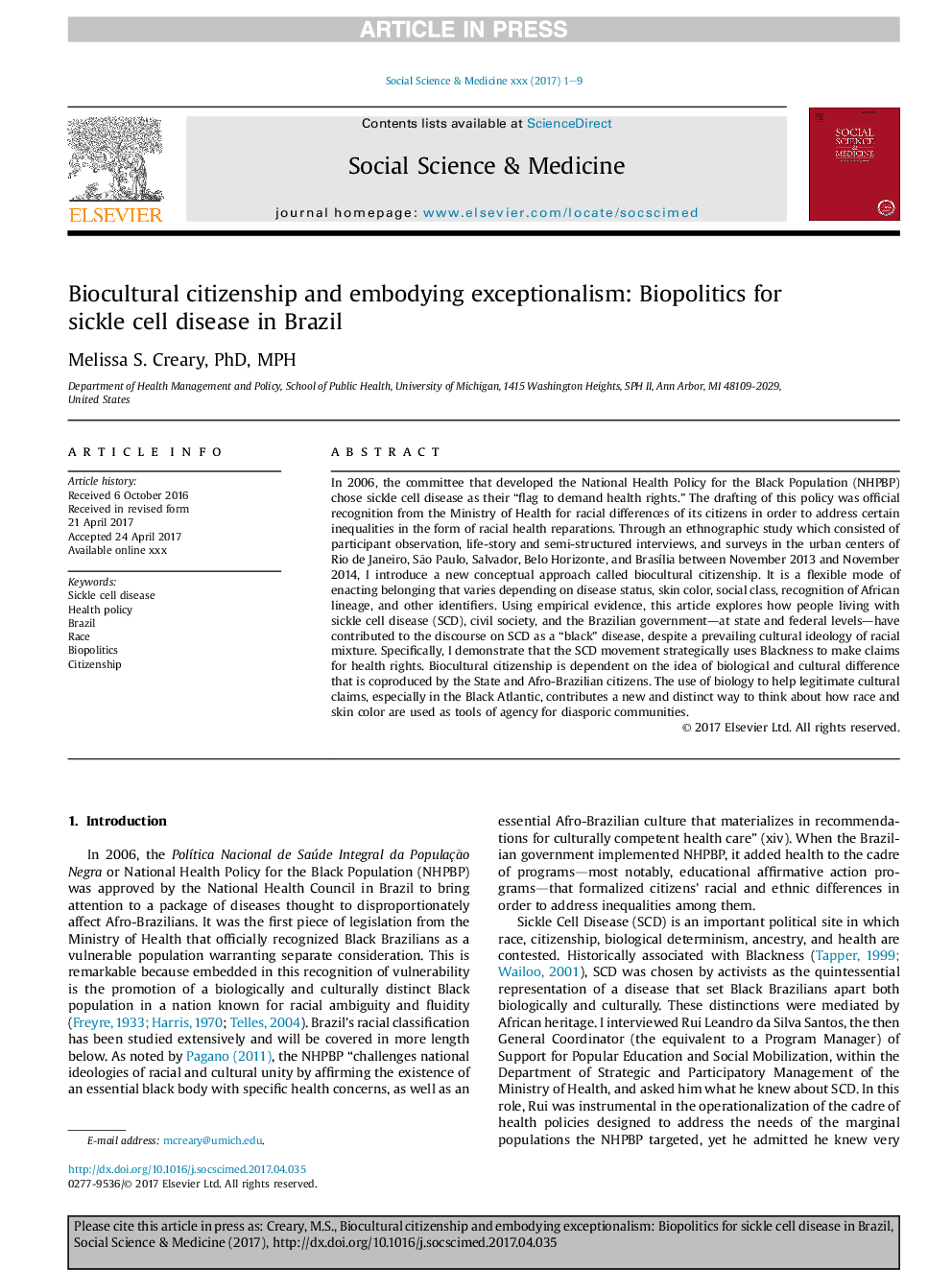| کد مقاله | کد نشریه | سال انتشار | مقاله انگلیسی | نسخه تمام متن |
|---|---|---|---|---|
| 7328539 | 1475970 | 2018 | 9 صفحه PDF | دانلود رایگان |
عنوان انگلیسی مقاله ISI
Biocultural citizenship and embodying exceptionalism: Biopolitics for sickle cell disease in Brazil
ترجمه فارسی عنوان
تابعیت بیولوژیکی و تجسم استثنایی: بیوپولتیک برای بیماری سلول داسی در برزیل
دانلود مقاله + سفارش ترجمه
دانلود مقاله ISI انگلیسی
رایگان برای ایرانیان
کلمات کلیدی
بیماری سلولی صرع، سیاست بهداشتی، برزیل، مسابقه، بیوپولتیک، شهروندی
موضوعات مرتبط
علوم پزشکی و سلامت
پزشکی و دندانپزشکی
سیاست های بهداشت و سلامت عمومی
چکیده انگلیسی
In 2006, the committee that developed the National Health Policy for the Black Population (NHPBP) chose sickle cell disease as their “flag to demand health rights.” The drafting of this policy was official recognition from the Ministry of Health for racial differences of its citizens in order to address certain inequalities in the form of racial health reparations. Through an ethnographic study which consisted of participant observation, life-story and semi-structured interviews, and surveys in the urban centers of Rio de Janeiro, São Paulo, Salvador, Belo Horizonte, and BrasÃlia between November 2013 and November 2014, I introduce a new conceptual approach called biocultural citizenship. It is a flexible mode of enacting belonging that varies depending on disease status, skin color, social class, recognition of African lineage, and other identifiers. Using empirical evidence, this article explores how people living with sickle cell disease (SCD), civil society, and the Brazilian government-at state and federal levels-have contributed to the discourse on SCD as a “black” disease, despite a prevailing cultural ideology of racial mixture. Specifically, I demonstrate that the SCD movement strategically uses Blackness to make claims for health rights. Biocultural citizenship is dependent on the idea of biological and cultural difference that is coproduced by the State and Afro-Brazilian citizens. The use of biology to help legitimate cultural claims, especially in the Black Atlantic, contributes a new and distinct way to think about how race and skin color are used as tools of agency for diasporic communities.
ناشر
Database: Elsevier - ScienceDirect (ساینس دایرکت)
Journal: Social Science & Medicine - Volume 199, February 2018, Pages 123-131
Journal: Social Science & Medicine - Volume 199, February 2018, Pages 123-131
نویسندگان
Melissa S. PhD, MPH,
